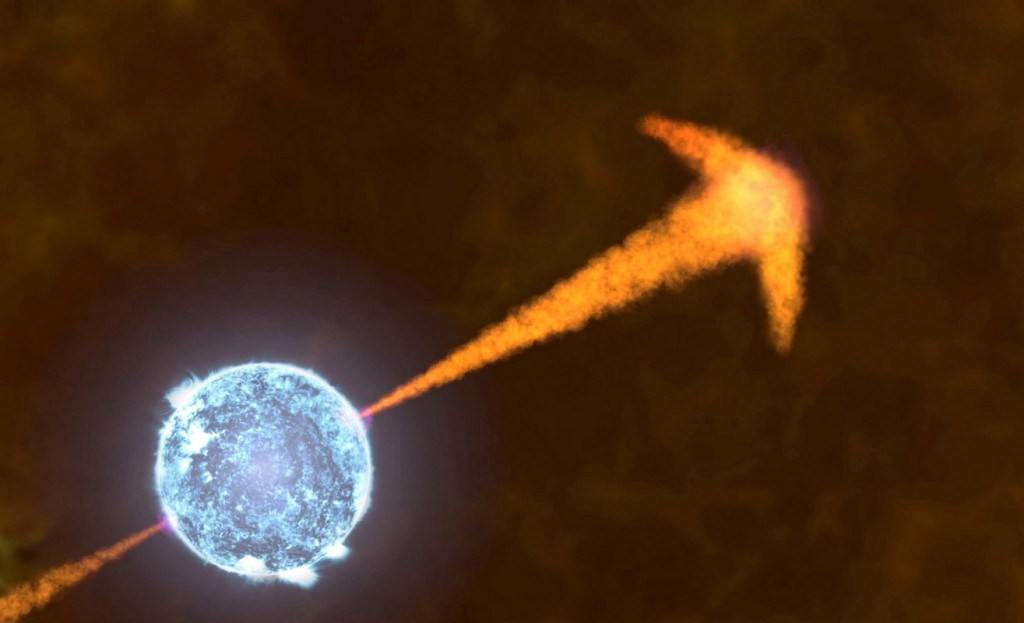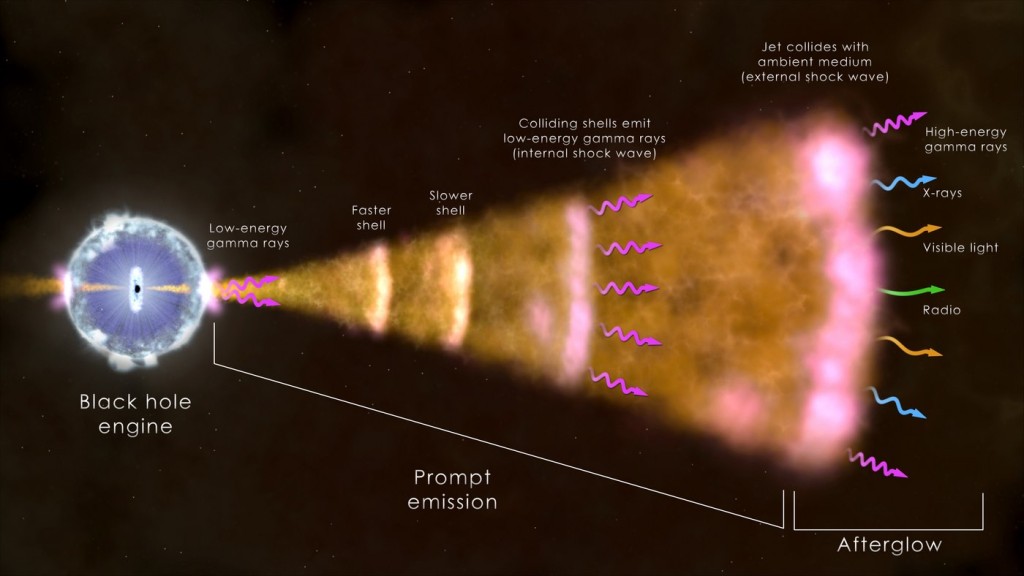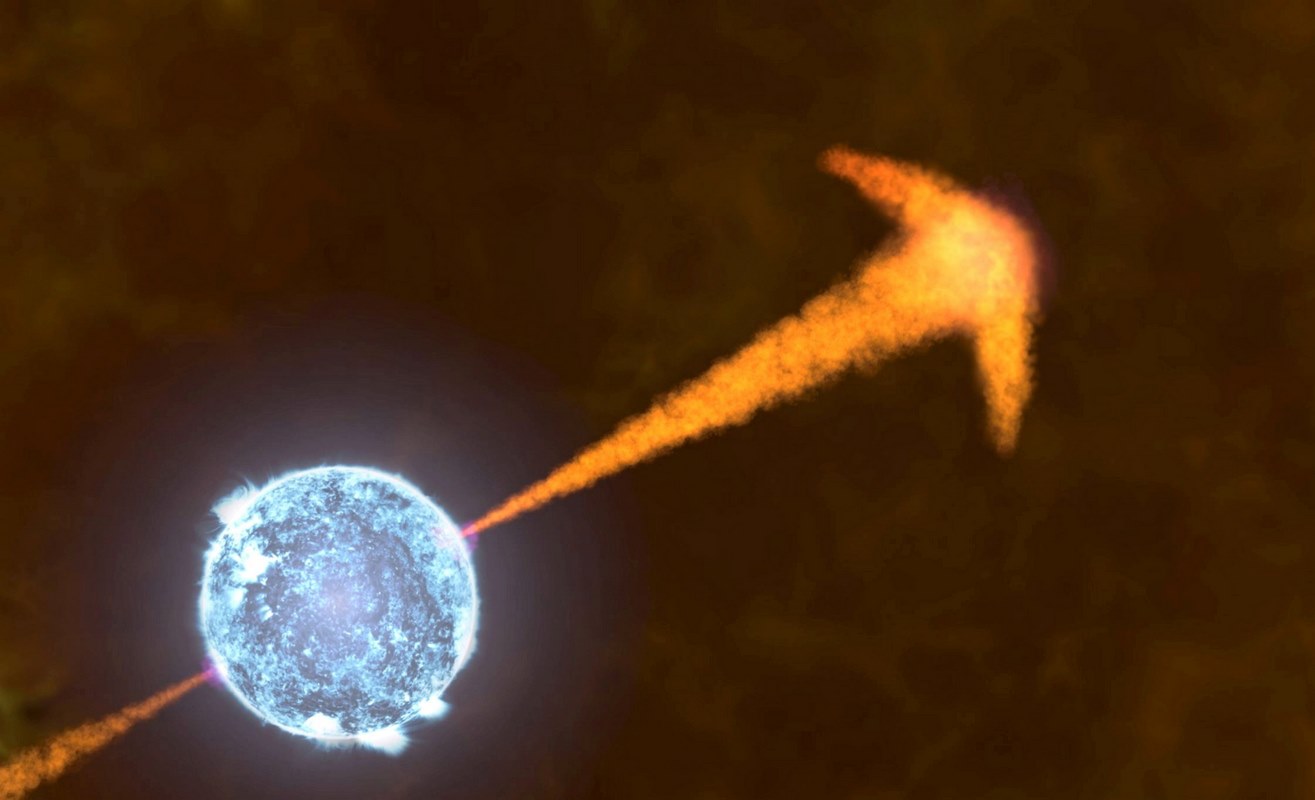
On Sunday, Oct. 9, 2022, a pulse of intense radiation swept through the solar system so exceptional that astronomers quickly dubbed it the BOAT—the brightest of all time.
The source was a gamma-ray burst (GRB), the most powerful class of explosions in the universe, and astronomers studying it believe it was the strongest to have happened since the dawn of human civilization.
Astronomers believe that GRBs happen following the death rattles of massive stars which run out of nuclear fuel and collapse into black holes. The newly-created singularity begins to ingest surrounding matter and blast out jets in opposite directions which emit X-rays and gamma rays as they travel through space.
This one had been traveling for 1.9 billion light-years before it reached us—relatively short for huge GRBs. It was detected by suites of gamma-ray instruments operated by all major spacefaring nations. Eric Burns, an assistant professor of physics and astronomy at Louisiana State University, led an analysis of 7,000 record GRBs and determined that this one was the BOAT.
The GRB was so bright, it effectively blinded the various instruments built to record them, including NASA’s Fermi Gamma-Ray Space Telescope. The reality of Burns’ work was that the BOAT may have been brighter, or possessed other characteristics, but because humanity was literally blinded by the light, we won’t ever know for sure.
MORE ASTROPHYSICS: Scientists Simulate a Small Universe as a Preview of What This New Space Telescope Will Discover – LOOK
Usually, GRBs are followed by supernovae, which originate from the same spot in space, but the BOAT has so far failed to follow up. This could be because it collapsed into a black hole rather than exploding.

“We cannot say conclusively that there is a supernova, which is surprising given the burst’s brightness,” said Andrew Levan, a professor of astrophysics at Radboud University in Nijmegen, Netherlands.
“If it’s there, it’s very faint. We plan to keep looking,” he added, “but it’s possible the entire star collapsed straight into the black hole instead of exploding.”
MORE ASTRONOMY: On Distant Planets that Don’t Rotate, Life May Exist Under Skies of Permanent Dawn and Dusk
Additional Webb and Hubble observations are planned over the next few months to be extra sure no supernova is there, because if one were to appear, it would be equally ginormous.
The brightest GRB previously recorded was around this time of year in April of 2013, and registered at 35 billion times the energy of visible light. By comparison, the BOAT is nearly 700 times brighter.
SHARE This Once In A Civilizational Discovery With Your Friends…




















